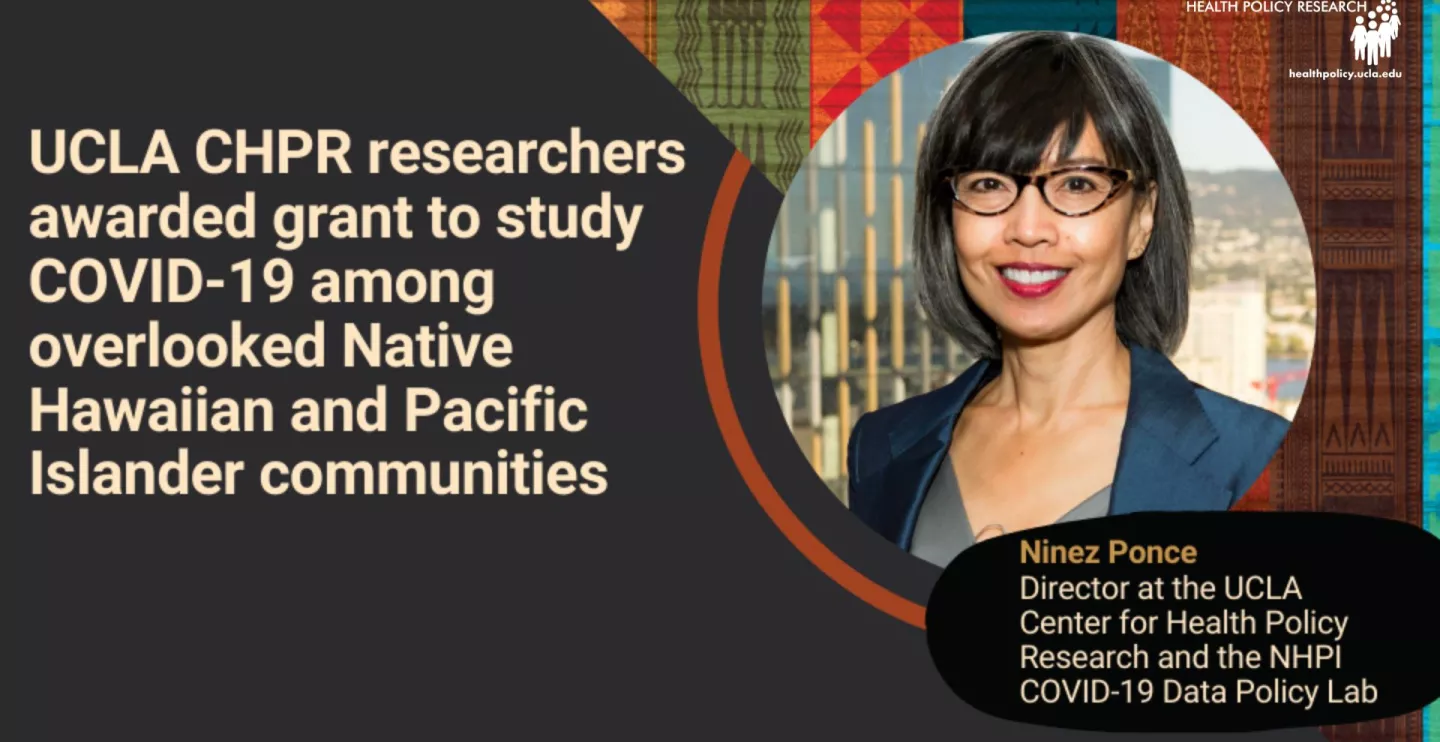Ninez Ponce, director of the UCLA Center for Health Policy Research, principal investigator of the center’s California Health Interview Survey, and professor of health policy and management at the UCLA Fielding School of Public Health, received a $500,000 grant from the Robert Wood Johnson Foundation (RWJF) to produce data on COVID-19 among Native Hawaiians and Pacific Islanders (NHPIs).
Under the grant, a team at the center’s Native Hawaiian and Pacific Islander COVID-19 Data Policy Lab will address health equity issues brought to light by the pandemic. Native Hawaiians and Pacific Islanders are currently seeing infection rates nearly five times that of white people in Los Angeles County alone, and the impact is felt across the nation, in states such as Arkansas, Louisiana, Illinois, Colorado, Washington and Oregon, where NHPI case and death rates are the highest among all racial and ethnic groups. In California, the NHPI case and death rates are higher than any other racial and ethnic group.
The lab was created in part to address the lack of COVID-19 data on Native Hawaiians and Pacific Islanders. Data that are broken up in specific subgroups are essential to deploy appropriate resources and aid to groups that are often invisible or unnoticed due to the alarming lack of representative data.
“To date, only 20 states and Washington, D.C. report NHPI COVID-19 cases and 19 states and the district report disaggregated NHPI COVID-19 deaths. States either report NHPIs aggregated with Asians or are put in ‘other race’ or may be put in ‘multiracial’ categories,” said Ponce. “If data is not disaggregated, then the high risks are hidden and decisionmakers will think there’s no problem for a given community. Our lab is also tracking cases and deaths over time, and lack of attention to the high COVID-19 risk for this population will lead to what could be avoidable infections and deaths; these are avoidable because resources for community outreach and education could get more testing sites and culturally-effective messages out on the COVID-19 toll on the NHPI community.”
“As a member of the Native Hawaiian and Pacific Islander community, being part of this newly-launched NHPI COVID-19 Data Policy Lab has been both a blessing and inspiring,” says Corina Penaia, community engagement and research director for the lab. “We are committed to protecting our families, empowering our community with knowledge, and providing actionable data to advocate for the health needs of NHPIs.”
During the grant period, the lab will put together a case study report on developing racial and ethnic data labs, an expanded data dashboard, and a policy platform for a coalition of organizations to ensure rescue efforts during the pandemic as well as economic recovery. Efforts will be dedicated to addressing striking gaps within data and research for Native Hawaiians and Pacific Islanders and the need to increase the number of states reporting cases within the community. Members of the lab will collaborate with network partners to promote resources among community groups and policymakers. Researchers hope that their work will provide a helpful model for other groups wanting to collect data on overlooked groups.
The UCLA Center for Health Policy Research (CHPR) is one of the nation’s leading health policy research centers and the premier source of health policy information for California. UCLA CHPR improves the public’s health through high quality, objective, and evidence-based research and data that informs effective policymaking. UCLA CHPR is the home of the California Health Interview Survey (CHIS) and is part of the UCLA Fielding School of Public Health and affiliated with the UCLA Luskin School of Public Affairs.
The Robert Wood Johnson Foundation’s mission is to improve health and health care of all Americans and it is the nation’s largest philanthropy dedicated solely to health.




